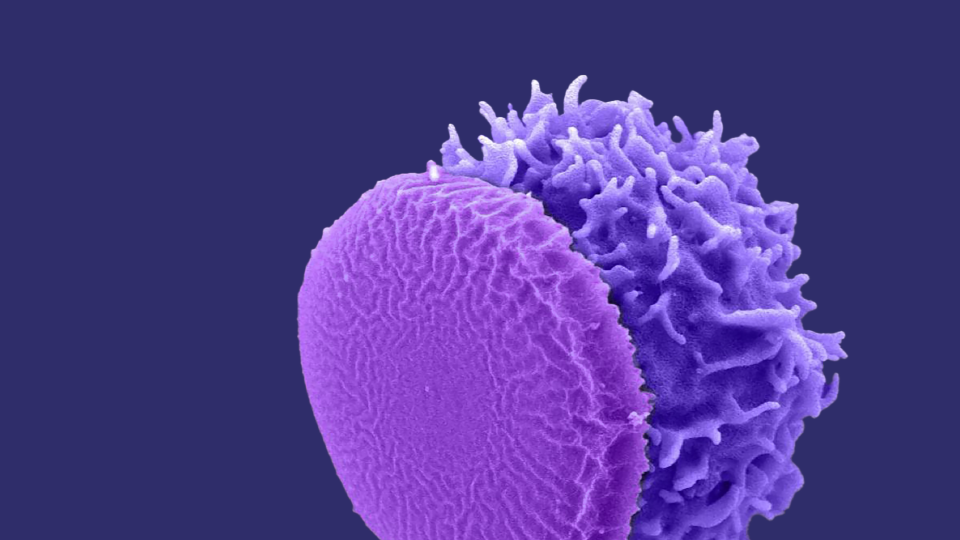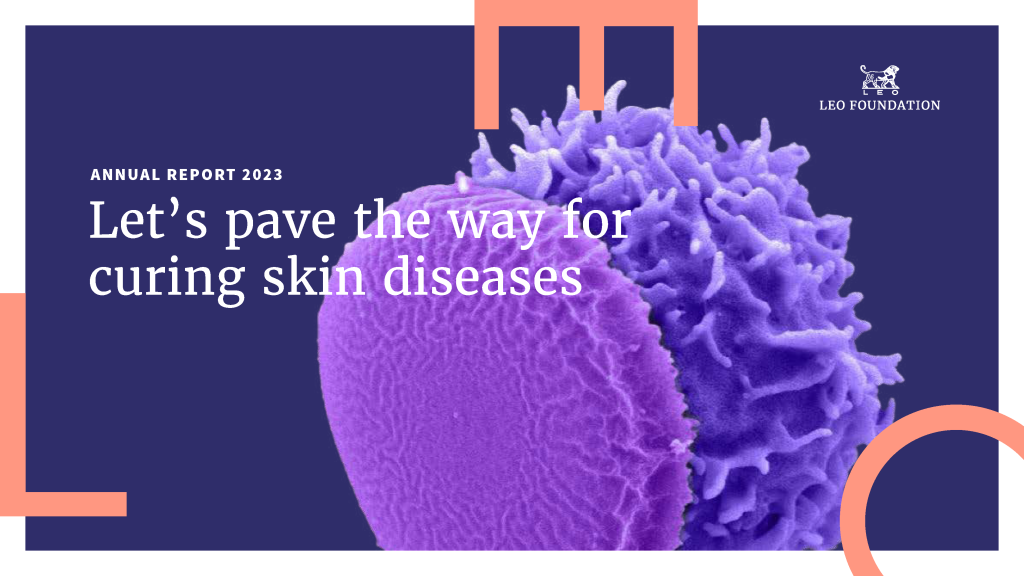25 March 2024
2023 was a year of significant achievements, alongside setting clear ambitions toward 2030 that guide the LEO Foundation’s work as an enterprise foundation, owner, philanthropist and investor. These achievements and clarity on our ambitions highlight our commitment to do our part in paving the way for curing skin diseases.
The LEO Foundation had a successful year in terms of both philanthropy and commercial activities in 2023. The grant level increased substantially, LEO Pharma achieved a strong uplift in operating performance, and the financial investments generated solid returns.
2023 highlights:
- With our philanthropic activities, we aim to catalyze outstanding research that pioneers new discoveries and transforms our understanding of the skin and its diseases. In 2023, we awarded DKK 217 million across 68 grants. Notably, we introduced two new open competition research programs: LEO Foundation Dr Abildgaard Fellowships supporting early career researchers and Serendipity Grants enabling active LEO Foundation grantees to investigate unexpected scientific discoveries. We also established our Education and Awareness Grants as an open competition program, focusing on strengthening the talent base for the next generation of researchers, and promoting and communicating science to the public. Additionally, we finalized the work on a LEO Foundation-specific framework for tracking and assessing the impact of our philanthropic activities.
- A cornerstone in the LEO Foundation’s charter and work is to be an engaged owner of the pharmaceutical company LEO Pharma ensuring the company’s long-term development and success – and thereby helping to advance the standard of care for the millions of people worldwide living with skin diseases. LEO Pharma reported a total revenue of 11.4 billion kroner (EUR 1.5bn) in 2023, a growth of 10% at constant exchange rates. Operational performance was realized in line with expectations, presenting an uplift in EBITDA to DKK 551 million, corresponding to a margin of 5%. This represents an improvement of DKK 2.1 billion compared to 2022, primarily driven by revenue growth, cost reduction measures and unwavering financial discipline across all functions. While the negative net result was unsatisfactory, we are encouraged by the continued improvement in LEO Pharma’s operational performance, which aligns with the company’s plans and strategic direction, paving the way for a sustainable and profitable business.
- With the LEO Foundation’s financial investments, we aim to generate attractive investment returns that enable us to ensure LEO Pharma’s long-term continuation and strategic development, as well as provide a growing basis for our philanthropic grants. At year-end 2023, the Foundation was managing assets of around 16.5 billion kroner (EUR 2.2bn) and posted a solid return of 1,639 million kroner (EUR 220m) for the year, equivalent to 10.7%. All asset classes – equities, credit, government and mortgage bonds, alternatives and overlay strategies – contributed positively.
- Overall, the net result for the Group in 2023 was a loss of DKK 1,628 million, compared to a loss of DKK 5,253 million in 2022.
2023 was also a year where we developed our ambitions toward 2030. Our ambitions are anchored in our charter and in a rich history of addressing skin diseases, and are being implemented through four strategic priorities, all sharing the common goal of contributing to paving the way for curing skin diseases. Learn more about our ambitions here
In 2024, we will be reaching new milestones, including the 40th anniversary of the LEO Foundation, highlighting the longevity of our commitment to drive change – for the benefit of people living with skin diseases. We are proud to join forces in that endeavor with all LEO Group colleagues and board members, our co-owner Nordic Capital, scientific committees and grantees around the world. It is their contributions and dedication that help pave the way for curing skin diseases.
A backpack on a T cell: The top photo is a visual of a “backpack” on a cell. Professor Samir Mitragotri and his team at Harvard John A. Paulson School of Engineering and Applied Sciences in the US are advancing skin wound healing with novel backpack technology. For optimal wound healing, macrophages, a cell type essential for healing, must maintain a specific active state. The new backpack technique involves attaching ultra-small “backpacks” laden with anti-inflammatory agents to macrophages, which help preserve this active state for up to two weeks, providing the necessary time for proper healing to occur. Image: Michael Griff Bibbey Suyog Shaha

